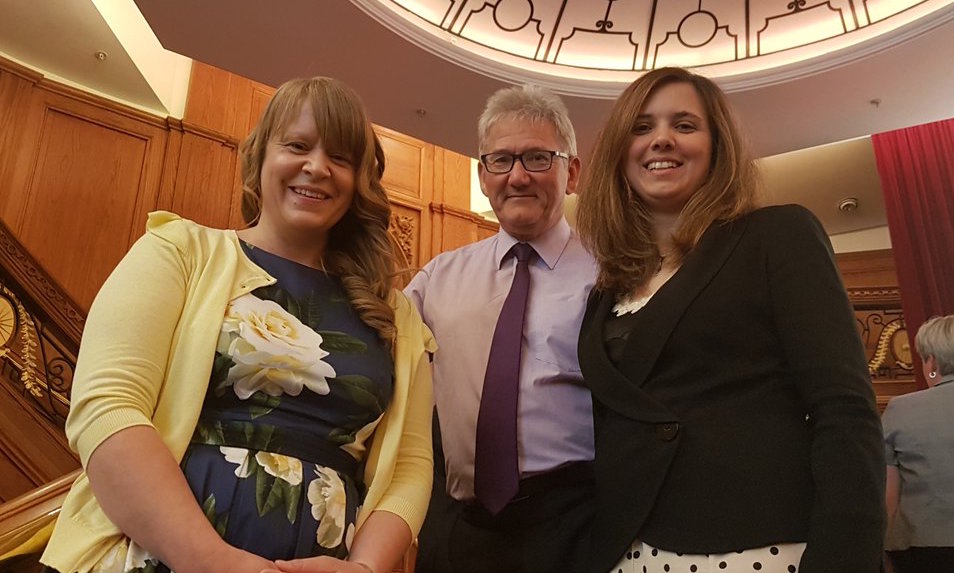Posted March 02nd 2021
Dr Steve Beyer and his Engage to Change evaluation team at the National Centre for Mental Health, pictured below, have published a briefing paper on the role of the NHS in employing people with a learning disability and/or autism.
The paper calls on Welsh Government to develop a public sector Learning Disability and Autism Employment Strategy for Wales that would not only benefit people with a learning disability and/or autism but also the NHS itself.

Evidence from a similar strategy in England suggests that “there have been significant benefits to hospitals and other services from supported internships and the employment of people with a learning disability or autism”.
Dr Beyer explained: “At this time of maximum pressure on the labour market it is important that public sector employers are encouraged to play their role as anchors within their local communities and regions, not least in relation to the employment of people with a learning disability or autism.”
Anchor institutions could lead the way
In the briefing paper, Dr Beyer defines these “anchor institutions” as “employers who are unlikely to move during periods of recession, represent significant reservoirs of capital, are significant purchasers of services and employ a large number of local people.”
Examples include the NHS, local authorities, universities and other public sector employers. These anchor institutions can influence the local economy in several ways:
- The way they commission and pay for services can help to promote jobs in local areas, improve rates of pay and create opportunities for apprenticeships and other similar schemes.
- How they use their capital assets such as land and buildings can help to generate work and job opportunities in the local area.
- As large employers, they can demonstrate good practise in equality and diversity as well as sharing knowledge and experience with other employers.
Response to the report
The team’s report went on to have its own recommendation in the Welsh Parliament’s Economy, Infrastructure and Skills Committee Report, Long-term recovery from COVID-19.
With more people unemployed and many employers just trying to stay in business, we have to do more to ensure there is a level playing field for young people with disabilities seeking employment.
“The Engage to Change project has shown that people can work with the right support. Now we need the public sector to lead the way on equal opportunity employment.
“Our proposals have been taken up by the Welsh Parliament in a recent Committee report on the long-term economic recovery from COVID-19. They recommend that Welsh Government develop a learning disability and autism employment plan for the Welsh public sector in line with the plan for the NHS set out in our briefing paper.”
Read the briefing paper in full.
Read the Easy read briefing.
Read more
- Engage to Change at NCMH: Meet the team
- Workplace wellbeing: enhancing employment opportunities for people with a learning disability or autism
Sign up now and receive new blog posts to your inbox.
